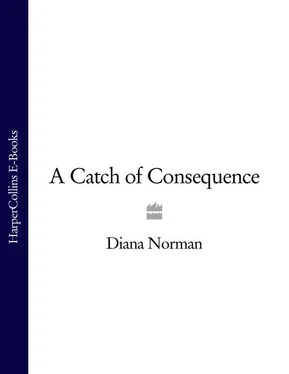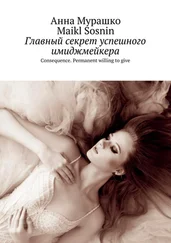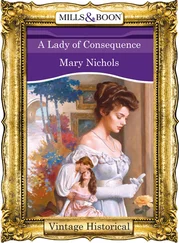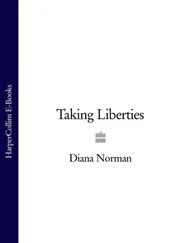‘Dam nation. ’ The problem wasn’t just the loss of her room but the fact that its door was directly across the corridor from the one serving the meeting-room used by the Sons of Liberty.
Oh well, as her Irish father used to say: ‘Let’s burn that bridge when we get to it.’
They put the bad arm in a sling of cheese-cloth and Tantaquidgeon lifted the semi-naked body and carried it up the tiny, winding back stairs, followed by Betty with a basket of salves. ‘And take his boot off afore it dirties my coverlet,’ Makepeace hissed after them.
Left alone, she looked round the kitchen for tell-tale signs of the catch’s presence in it. Nothing, apart from a bloodstain on the table that had seeped from a wound on his head. Je ho sophat, they’d cudgelled him hard.
She was still scrubbing when Aaron came in, having rowed back from Cambridge after a night out with friends. ‘All hail, weird sister, I expect my breakfast, the Thaneship of Cawdor and a scolding. Why all the smoke in town, by the way? Did Boston catch fire?’
‘It surely did.’ He looked dark-eyed with what she suspected was a night of dissipation but she was so relieved he’d missed the rioting that he got an explanation, a heavy breakfast and a light scolding.
He was horrified. ‘Good God,’ he said.
‘Aaron!’
‘Well … the idiots, the weak-brained, scabby, disloyal, bloody—’
‘Aaron!’
‘—imbeciles. I blame Sam Adams. What’s he thinking of to let scum like that loose on respectable people?’
‘You stop your cussing,’ she said. ‘They ain’t scum. And Sam’s a good man. Respectable people? Respectable lick-spittles, respectable yes-King-Georgers, no-King-Georgers, let me wipe your boots with my necktie, your majesty. I wished I’d been with ’em.’
‘It’s a reasonable tax, ’Peace.’
‘You don’t pay it.’ Immediately, she was sorry. She didn’t want him indebted; she’d gone without shoes and, sometimes, food to raise and educate him and done it gladly. What she hadn’t reckoned on was that he’d become an English-loving Tory.
She broke the silence. ‘Aaron, there’s a man up in my room—’
He grinned. ‘About time.’
‘You wash your mouth out.’ She told him the story of her dawn catch. He thought it amusing and went upstairs to see for himself.
Makepeace turned her attention to the lobsters which, neglected, had begun to tear each other’s claws off.
‘Reckon he’s English,’ was Aaron’s verdict on his return. ‘A lord to judge from his coat. Did you see how they cut the cuffs now? When he marries you out of gratitude, remember your little brother.’
‘Sooner marry the Pope,’ Makepeace said. Aaron could be trusted on fashion; he made a study of it. An Englishman, by Hokey, worse and worse. ‘That important, somebody’ll be missing him, so keep your ears open today and maybe we’ll find out who he is. But don’t ask questions, it’d seem suspicious. And, Aaron …’
‘Yes, sister?’
‘I want you home tonight. But, Aaron …’
‘Yes, sister?’
‘No argifying and no politics. The Sons is getting serious.’
‘Ain’t they, though?’ He kissed her goodbye. ‘Just wait ’til I tell ’em you’re marrying the Pope.’
She waved him off at the door.
The Cut was awake now, shutters opening, bedclothes over windowsills to be fumigated by the sun, brushes busy on doorsteps, its men coming up it towards the waterfront – even those without jobs spent the day on the docks hoping, like rejected lovers, that they would be taken on again. Only Aaron went against the flow, heading towards the business quarter with an easy swagger.
Few wished him good morning and she suspected he didn’t notice those who did. Already he’d be lost in the role of Romeo or Henry V or whatever hero he’d chosen for himself today; he was mad for Shakespeare. The Cut, however, didn’t see youthful play-acting, it saw arrogance.
From a doorway further down came a sniff. ‘You want to tell that brother of yours to walk more seemly.’ Goody Busgutt was watching her watch Aaron.
‘Morning, Mistress Busgutt. And why would I do that?’
‘Morning, Makepeace. For his own good. He may think he’s Duke Muck-a-muck but the Lord don’t ’steem him any higher’n the rest of us mortals. A sight lower than many.’
Makepeace returned to her empty kitchen. ‘ I’ll ’steem you, you bald-headed, bearded, poison-peddling, pious …’ In place of Mistress Busgutt, two lobsters died in the boiler, screaming. ‘… you shite-mongering, vicious old hell-hag.’
Cursing was Makepeace’s vice, virtually her only one. John L. Burke, master of profanity, lived again in the Irish accent she unconsciously adopted when she indulged it. She allowed no swearing in others but, as with the best sins, committed it secretly to relieve herself of tension, with an invective learned at her father’s knee. Today, she reckoned, having sent her both a dangerous, unwanted guest and Goody Busgutt all in one morning, the Lord would forgive her.
It was a busy day, as all days were. With Tantaquidgeon stalking in her wake, she took her basket to Faneuil Market instead of to Ship Street’s where she more usually did her buying, partly because the meat in its hall would be kept cooler and freer of flies than that on open stalls and partly to listen in that general meeting place for mention of a missing Englishman. She doubted if she could have heard it if there had been; Faneuil’s was always noisy but today’s clamour threatened to rock its elegant pillars.
Boston patriotism, simmering for years, had boiled out of its clubs and secret societies into the open. For once a town that prized property and propriety was prepared to sacrifice both for something it valued higher. There was no catharsis from last night’s mayhem, no shame at the damage, everybody there had become a patriot overnight. ‘We showed ’em.’ ‘We got ’em running.’ She heard it again and again, from street-sellers to wealthy merchants. She found satisfaction in hearing it from a knot of lawyers fresh from the courthouse, as exhilarated as any Son of Liberty at last night’s breakdown of order. Deeds, wills, all litigious documents were subject to Stamp Duty; the tax had hit the legal profession hard. But you sharks can afford to pay it, she thought, I can’t.
Even newspapers – another taxed item – had increased in price; she could no longer take the Boston Gazette for her customers to read as she once had. From the triumphant headlines: ‘The Sons of Liberty have shown the Spirit of America’, glimpsed as copies were passed hand-to-hand through the market, she gathered that the press was trumpeting revenge.
Indeed, no catharsis. If anything, those who’d taken part were excited into wanting to do it again and gaining recruits who saw their royal Governor taken aback and helpless.
In one corner, a penny whistle was accompanying a group singing ‘Rule, Bostonians/ Bostonians rule the waves/ Bostonians never, never, never shall be slaves’ with more gusto than scansion. Tory ladies, usually to be seen shopping with a collared negro in tow, were not in evidence, nor were their husbands.
‘Mistress Burke.’
‘Mistress Godwit.’ Wife to the landlord of the Green Dragon in Union Street. They curtsied to each other.
‘Reckon we’ll see that old Stamp Tax repealed yet,’ shrieked Mrs Godwit.
‘We will?’ shouted Makepeace. ‘Hooray to that.’
‘Don’t approve of riotin’ but something’s got to be done.’
‘Long as it don’t affect trade.’
They were joined by Mrs Ellis, Bunch of Grapes, King Street. ‘Oh, they won’t attack patriotic hostelries. Tories’ll suffer though. I heard as how Piggott of the Anchor got tarred and feathered.’
Читать дальше












